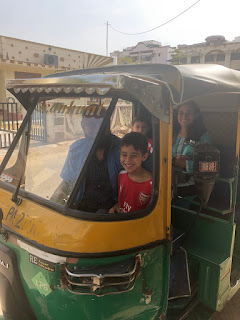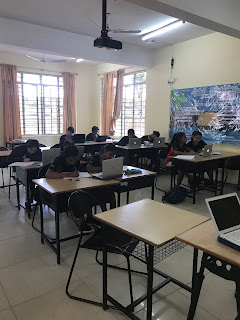Caste System in India
Author's Note: Please know that I am trying to understand the Caste system in India and I am just thinking out loud based on what I am learning in my Class, Caste, Gender course. There is NO judgement. They are just thoughts.
General History of Caste courtesy of BBC News: Manusmriti, widely regarded to be the most important and authoritative book on Hindu law and dating back to at least 1,000 years before Christ was born, "acknowledges and justifies the caste system as the basis of order and regularity of society".
The caste system divides Hindus into four main categories - Brahmins, Kshatriyas, Vaishyas and the Shudras. Many believe that the groups originated from Brahma, the Hindu God of creation.
For centuries, caste dictated almost every aspect of Hindu religious and social life, with each group occupying a specific place in this complex hierarchy. Rural communities were long arranged on the basis of castes - the upper and lower castes almost always lived in segregated colonies, the water wells were not shared, Brahmins would not accept food or drink from the Shudras, and one could marry only within one's caste.
Traditionally, the system bestowed many privileges on the upper castes while sanctioning repression of the lower castes by privileged groups. Often criticised for being unjust and regressive, it remained virtually unchanged for centuries, trapping people into fixed social orders from which it was impossible to escape. Despite the obstacles, however, some Dalits and other low-caste Indians, such as BR Ambedkar who authored the Indian constitution, and KR Narayanan who became the nation's first Dalit president, have risen to hold prestigious positions in the country.
Independent India's constitution banned discrimination on the basis of caste, and, in an attempt to correct historical injustices and provide a level playing field to the traditionally disadvantaged, the authorities announced quotas in government jobs and educational institutions for scheduled castes and tribes, the lowest in the caste hierarchy, in 1950.
Author's Reflection: The word
caste means different things for different people. In class, I often wonder
where do I fit into the caste system? Or am I an outcaste? As I listen to my
Professor talk about caste in India, I try to think about what if I was living
in India for an indefinite amount of time. What would caste mean to me? Where
would I fit in? Or coming from America, I automatically am respected? Why? Has
it changed over generations? Is there a space in which caste is completely non-existent?
Now that I am an avid bus goer, take the bus systems for example—does it cross
caste and socio-economic status? How would anyone know what caste or social or economic stratification do I belong too?
 Interestingly, we met a person that is a Brahmin. One way to identify a Brahmin is that they wear a white thread across their body. We would have had no idea but he explained that he only wears his white thread when he goes home. I was not brave enough to inquire more about it. In class, there are heated discussions about it and I do not want to be too intrusive.
Interestingly, we met a person that is a Brahmin. One way to identify a Brahmin is that they wear a white thread across their body. We would have had no idea but he explained that he only wears his white thread when he goes home. I was not brave enough to inquire more about it. In class, there are heated discussions about it and I do not want to be too intrusive.
I keep asking myself how would one change their place in the caste
system? I agree with my Professor, education would be a key component of change one's place in the caste
system. The more one is aware of the history and the consequences, individuals than can make choices towards the betterment of society.
My last thoughts are: Is caste
only rooted in Hinduism? Is race comparable to caste? Endogamy exists in many
cultures. Why is it seen as a negative concept? There are so many benefits. Granted I married outside my community? Or did I? I was born and raised in the US which than makes my community American? For Hindus, can marrying outside your community help to end the caste system and thinking? Do I think this way because of the privileges I have been fortunate to be given? Am I just an outlier? Or can I even put myself in the equation since I was not born and raised
in India, I am only of Indian decent?




Brinda - My dad had told me that we are vaishyas, because my grand father had lot of land and property and was landlord in village Thut in Sindh. My father was the first person to leave village and go to Bombay for college and did BSC (Bachelor of science) and started working for British government in Sindh state. Therefore after partition in 1947 we moved to New Delhi where my father got job with new Indian government. For first 2 years we children & Mom lived in Ajmer (Rajisthan) with our uncle, till he got the house.
ReplyDeleteEven Ratna's parents were Vaishya's (landlords) and went for college in Karachi and they moved to Calcutta 2 years before partition and established machinery business, which Sonu is still carrying on.
White thread ceremony is one of the rituals of Hindus. So we all have that white thread, which according to Hindu religion we all have to wear all the time. But most of the educated or progressive people keep it at home.
Good to know. Thanks. And this information is great for my part II on Caste....coming soon...I am realising education is one key component to eradicating caste.
ReplyDelete